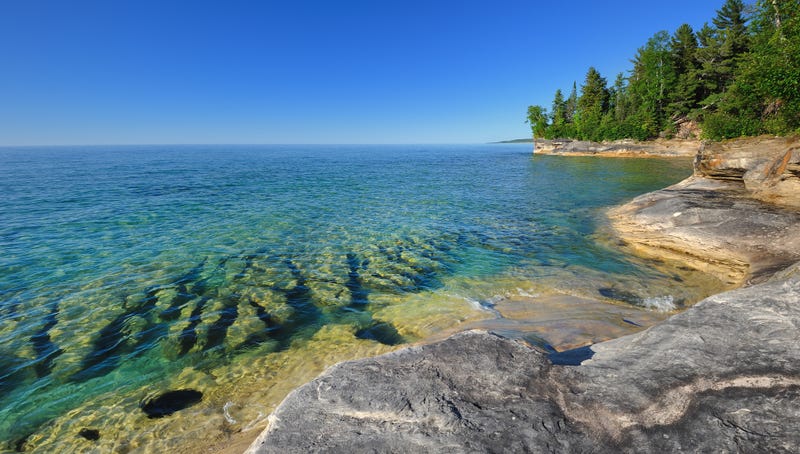
(WWJ) - Researchers warn dangerous algae blooms and warming water around the Great Lakes will impact Metro Detroit more intensely and for longer as climate change continues to heat up around the globe.
According to researchers from the School of Ocean Sciences at Bangor University in Wales via WXYZ, affects of rising temperatures associated with climate change is closely mirrored in the waters surrounding Michigan.
“Some of the lakes that we find that are warming the most are those typically situated at higher latitudes, so this would be the lakes in North America, Scandinavia, Lake Baikal in Siberia for example," co-author and independent research fellow Iestyn Woolway said to WXYZ.
Woolway said data was collected from lakes around the world, including the Great Lakes.
The study showed specific concern for the waters of Lake Erie, Woolway explained, where infamous algae blooms have plagued beaches and shorelines from Toledo to Detroit.
Researchers warned the blooms will be worse if water temperatures continue to rise stick around in what's called 'lake heat waves.'
“The mean temperature of the Great Lakes is increasing," Woolway said, drawing from observations documented since the 1980s. "And the occurrence of what we refer to as extreme temperatures, so lake heat waves, are becoming more prominent, more intense, and occurring for a longer period of time," he said.
Lake heat waves are determined when water in the Great Lakes goes over the top 10 percent of recorded temperatures for a total of five days or more.
Woolway and his group found rising water levels appear to correlate with changes happening in the earth's atmosphere.
"They’re sensitive to what happens in the climate," Woolway explained. "And they mirror the long-term changes in air temperatures. So if air temperatures continue to rise, and they are projected to do so due to green house gas emissions, then lake temperatures will follow suit.”
As other research shows on overall climate change, the rising water temperatures in the Great Lakes is a man-made problem, Woolway said,.
Woolway said he and his group's research suggests lake heat waves will continue to increase, with potential for the phenomena to occur up to 25 times more than they already do.
Woolway said emissions must be cut to help against this threat to the lakes and their ecosystems, as prolonged heatwaves could lead to permanently high water temperatures.
And high water temperatures lead to algae blooms, Woolway said. Even if carbon emissions are curbed, the effects of high water temperatures will still stick around.
“Lake heatwaves will continue to occur, they will continue to be felt by the aquatic ecosystems, but they will not get progressively worse," he said.



![Michigan man documents 1,000 Lake Superior sunrises in the Upper Peninsula [PHOTOS]](https://radioimg.audacy.com/aiu-media/12584410738648908868545444170114276364461545n-6081a9c1-3116-428e-9a88-9fd4a0fac807.jpg?crop=16:9)